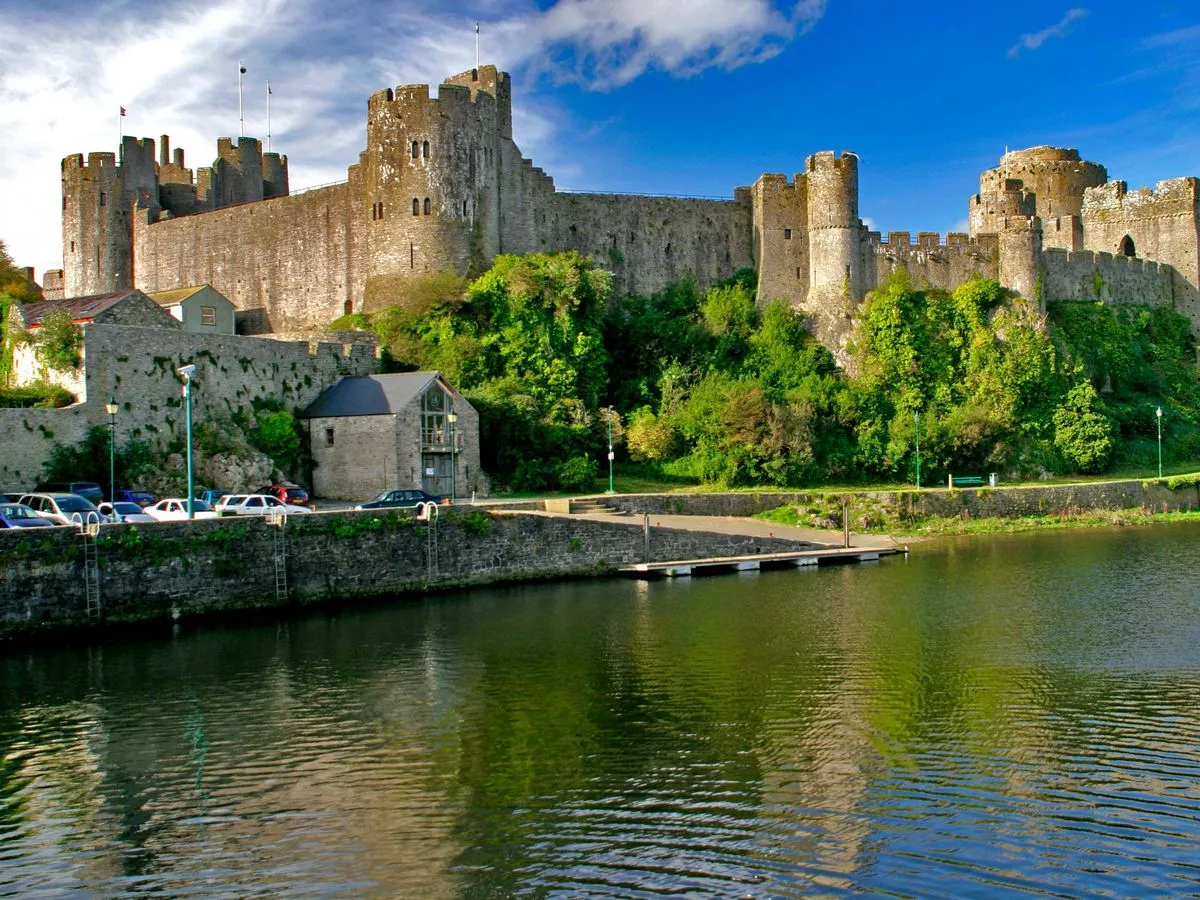Copyright walesonline

I love a coastal town with a castle, and here in Wales we're blessed with several gorgeous spots for a weekend escape. There's one place in particular that might be overlooked in favour of touristy hotspots like Tenby and St David's, which is the town of Pembroke, previously voted one of the most desirable places to live in Wales. Located in beautiful Pembrokeshire, the particularly walled town offers a charming blend of historical charm with a traditional market atmosphere, local shops, and proximity to the Pembrokeshire Coast Path. Pembroke is a popular holiday destination, and according to Visit Pembrokeshire, it is a “textbook medieval fortified town” and dates back more than 900 years. For our free daily briefing on the biggest issues facing the nation, sign up to the Wales Matters newsletter here Its central main street heads east from the castle gates, and a moat extends around much of the town. The old town walls are “remarkably” intact and are complete with defensive towers. Along with its rich medieval history, Pembroke is full of Georgian and Tudor houses and places to eat and drink, including welcoming waterside pubs. It's also just a short hop from the Pembrokeshire Coast National Park, which includes some of Wales’ most beautiful scenery, with a spectacular coastal path, rugged beaches and pebbly coves. The town is dominated by its impressive Norman castle, one of the most complete in the UK and the birthplace of Henry VII, the founder of the Tudor dynasty. Pembroke Castle is over 900 years old and was the seat of power in West Wales for centuries. Set on the banks of the river estuary, this mighty fortress is surprisingly intact, and you can still climb to the top of the 80-foot keep and enjoy magnificent views. As Wales Online reports , after being plundered by locals to build their houses, the ruin became a project for a major general after he left the military in the 1920s, and as it passed down family lines, it became a place where sisters Clarissa Burgess and Victoria Bruce would call their own playground as little girls. Today, it's in a trust whose mission is to conserve and protect the castle for the people of Pembroke and Wales. Now open to visitors year-round, you spend a morning learning about its fascinating history and marvel at its imposing walls, which have been constructed, rebuilt and restored over the last thousand years to house many notable figures. There are free guided tours daily, which are included in the cost of admission, and the Castle Gift Shop and Heraldry Centre offer unique gifts and souvenirs. See the imposing walls from a different angle and take a slow stroll or bike ride along the circular path that once served as the castle’s moat, now a peaceful millpond. The smooth, tarmacked route is perfect for both walking and cycling, with the best views waiting for you from the tidal wall on the far side of the castle. This sturdy wall was built to hold the millpond in place, stopping the water from flowing out with each tide. From here, the town behind the castle walls is almost entirely hidden; it’s an incredible sight you won’t want to miss! If you fancy something more adventurous, you can hire a rowing boat from Paddlewest and experience the view from the water. Or, for an even closer look, join a half-day canoe tour of the Cleddau Estuary. For more history, follow the bronze plaques set into the pavements on the Pembroke Town Trail to learn more about the town’s rich history involving the Knights Templar, Cromwell and the big dog himself, Henry Tudor. While there's plenty of history in Pembroke, it's also undergoing a modernising regeneration scheme. The ambitious project at South Quay, situated beneath the town's historic castle, is being spearheaded by Pembrokeshire County Council alongside Andrew Scott Ltd and was originally estimated at £18m before advancing through its two-stage development. Phase one, backed by Welsh Government funding, will deliver a Henry Tudor visitor centre, library and information hub, café, and landscaped gardens. The second stage, dubbed the 'Pembroke Hwb', receives support from the UK Government's Levelling Up initiative and Welsh Government backing. This element will see numbers 7 and 8 Northgate Street converted into a three-storey combined community facility. Food-wise, you're right in the heart of gastro hotspot Pembrokeshire, the coastal county is buzzing with indie producers, creative chefs, and cosy coastal pubs serving seriously good food. It’s all about local flavour here. Expect small-batch gin, hand-dived seafood, and field-to-fork cooking that delights. Travel slowly along the coast, and you’ll find quality Welsh dishes served in places that care, crab sandwiches by the sea, seaweed picked fresh that morning, and beef raised just down the road. In Pembroke town, there are several places to stop for a pub lunch or a drink. Family-friendly Watermans Arms is a popular spot for a pint overlooking the Mill Pond and an enviable view of Pembroke Castle. Their home-cooked pub grub classics range from burgers, fried chicken and beer-battered cod to vegetable curry and seafood linguini. The Royal George is another great waterside spot that serves a selection of ales and decent eats like fish pie, sausage, chips, and burgers. One of the oldest businesses in Pembroke is Brown’s Fish & Chip Café. Dating back to 1928, this chippie was opened by Sid and Connie Brown and is still run by her family. Order their famous cod and chips or their huge cooked breakfast. If you want to make a weekend of it, you can stay right in town at the budget-friendly Coach House Hotel. The former medieval coaching inn is a 5-minute walk from Pembroke train station and an 8-minute walk from Pembroke Castle. Down the road, Lamphey Hall Hotel has a selection of affordable rooms and is located near beaches and coastal walks.



